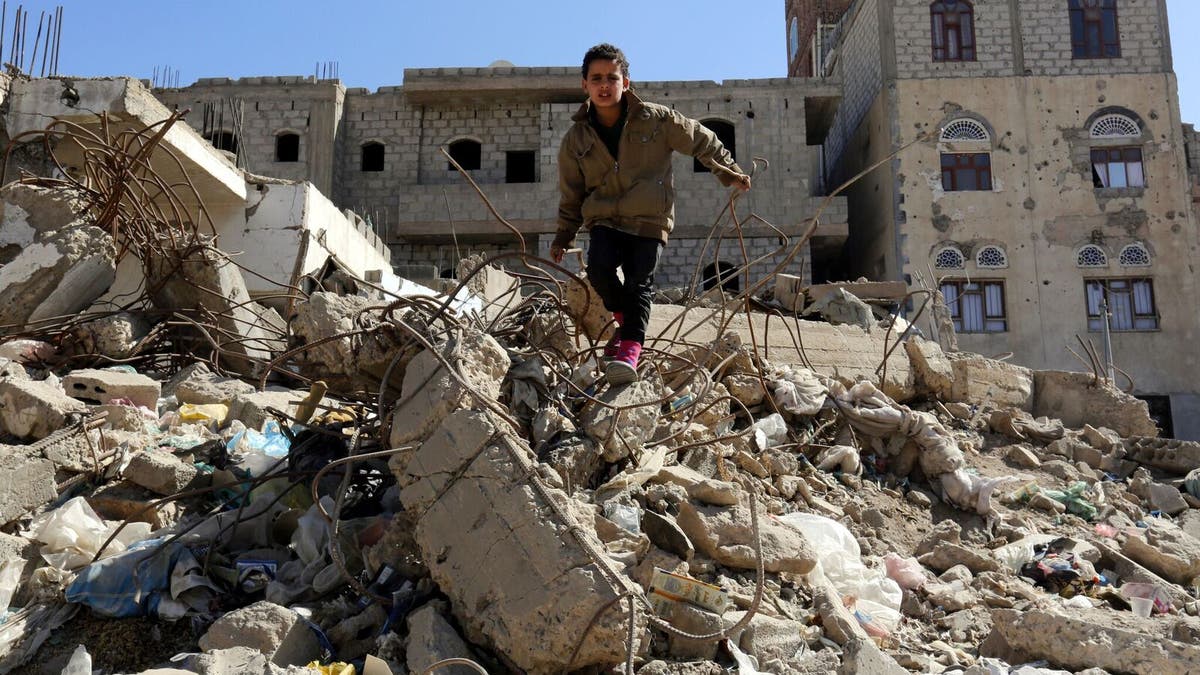
Sana'a. A child stands in the middle of destroyed buildings in his neighborhood. (EPA/ICRC/YEYHA ARHAB)
Yemen has displaced civil war-shattered Syria as the world's worst humanitarian crisis - where the situation could get even worse if a bill proposed by Sen. Bernie Sanders to end U.S. involvement in the conflict becomes law.
That's according to critics of the call by the Vermont senator and former Democratic presidential candidate to disengage the U.S. from the ongoing conflict between Yemen's Iran-backed Houthis, who have waged a three-year, scorched-earth war against a Saudi-backed Sunni government.
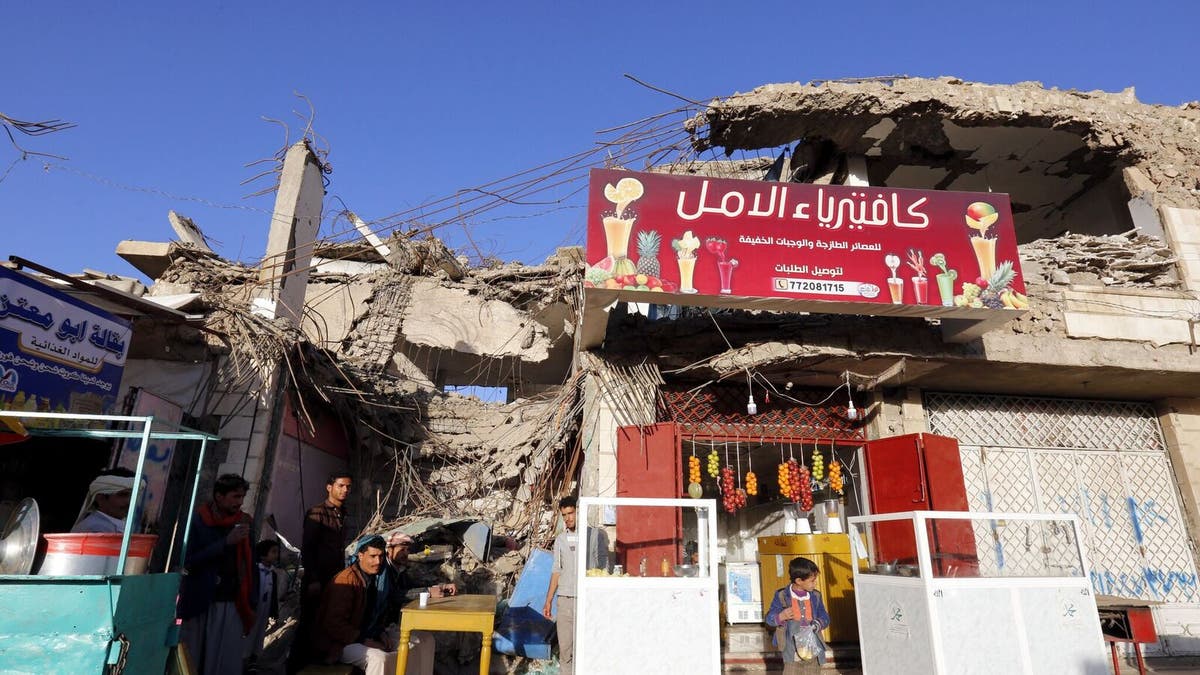
Sana'a. A young man in his food store, located in a destroyed building. (EPA/ICRC/YEYHA ARHAB)
The controversial U.S involvement in Yemen, in support of the Saudi effort, could end as early as next week if the bipartisan bill introduced late last month by Sanders and Sens. Chris Murphy (D-Conn.) and Mike Lee (R-Utah) can be forced to a floor vote, as its backers anticipate.
Sanders argues the Obama adminisration in 2015 deployed U.S. forces to support the Saudi coaltion without consulting Congress. And that makes ongoing U.S. efforts there an "illegal" war, Sanders maintains.
“The Saudi-led war in Yemen has created a humanitarian disaster in one of the region’s poorest countries,” Sanders wrote on Facebook. “The chaos in Yemen has also been strategically disastrous for the U.S., providing fertile ground for extremist groups like Al Qaeda and ISIS, and creating new opportunities for Iranian intervention.”
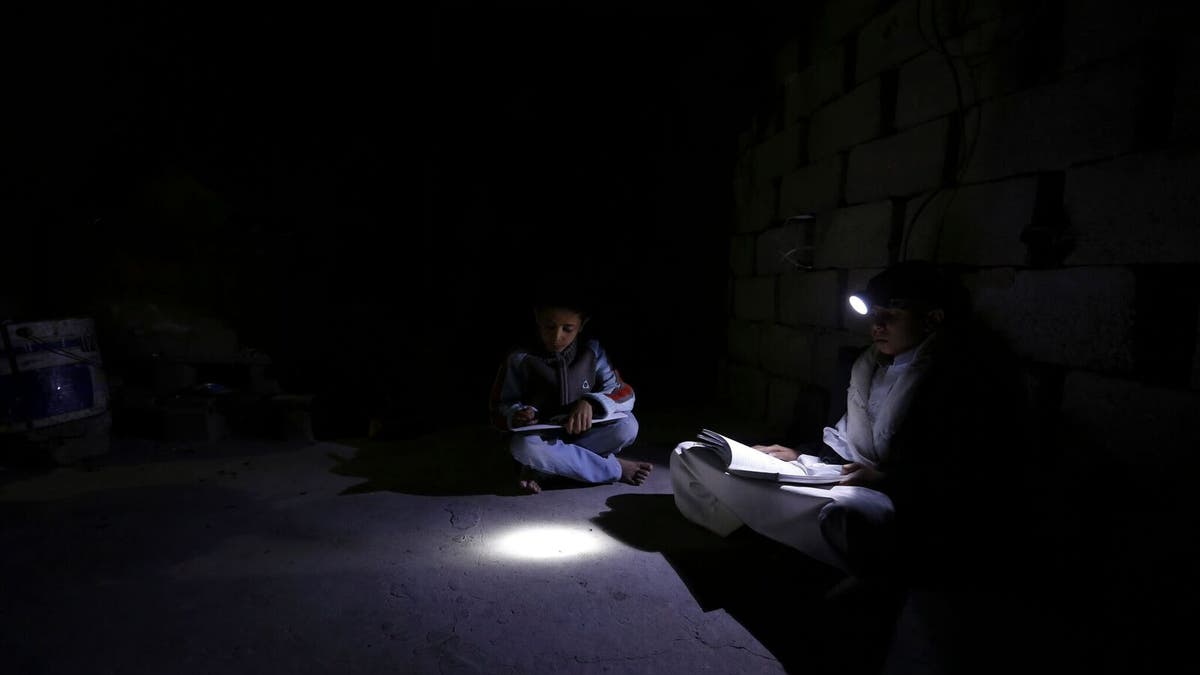
Sana'a. Intense darkness prevails over the neighborhood due to a severe shortage of electricity. Hisham, 14 years old, and Yazan, 8 years old, study in a room inside their home. E (PA/ICRC/YEYHA ARHAB)
The Saudi-led coalition, which receives military support from the United States, is accused by much of the international community of waging an arbitrary aerial and ground campaign against civilians across its border. The U.S. also supports the Saudi-led coalition by assisting with logistics such as air refueling.
But others argue Sanders’ view fails to acknowledge the destruction may only worse should the U.S withdraw - and thereby heighten Iran’s power and influence in the already-tumultuous region.
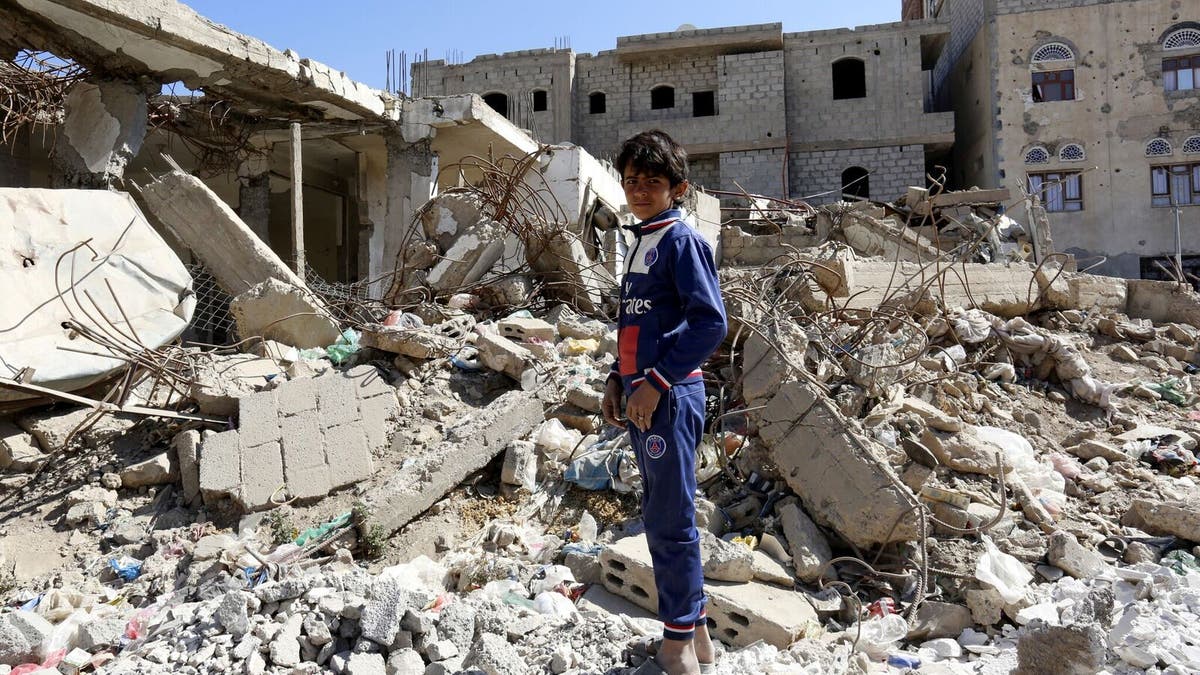
Sana'a. Ali, 13 years old, stands in the middle of destroyed buildings in his neighborhood. (EPA/ICRC/YEYHA ARHAB)
“The U.S is assisting to stop an Iranian-Hezbollah base, so the question is whether we prefer whether we want Iran to have that capability,” said Ryan Mauro, national security and defense analyst for the Clarion Project. Mauro cautioned there could be “severe economic consequences” if Iranian influence is given a freer hand.
“The downside of halting support for our allies in the Yemen war is that the war will continue, with heavier civilian losses if the cutoff of U.S. intelligence leads to greater collateral losses in Saudi air strikes, while Washington’s reputation as a dependable ally will be damaged,” added Jim Phillips, senior research fellow for Middle Eastern sffairs at the Heritage Foundation. “The ending of U.S. participation in the naval quarantine will result in fewer interceptions of ships carrying Iranian arms to the Houthis and a greater risk that Houthi ballistic missile attacks on Saudi Arabia will escalate the crisis.”
Phillips also cautioned a U.S. withdrawal could enable the Houthis to increase the threat they pose to civilian shipping, the U.S. Navy and the navies of Saudi Arabia and the UAE in the Red Sea.
“The U.S should continue its diplomatic, logistical and limited military support for the Saudi-led coalition that supports the internationally recognized government of Yemen,” he said.
The Houthi rebels – who control the Yemeni capital, Sana’a, and have forced the legitimate Yemen government to operate from Aden – are accused of relentlessly firing artillery into cities, planting landmines, and recruiting child soldiers.
The Iranian government denies providing direct military support to the Houthis. But that claim that is dismissed by the U.S., which is said to have intercepted Iranian long-range missiles fired over the Yemeni border.
While the debate over involvement and finger-pointing continues, there is no doubt the proxy conflict is taking its toll on civilians.
“The situation continues to deteriorate, and the longer it lasts the more fragmentation will occur. Yemen has replaced Syria as the worst humanitarian crisis in the world,” Dominick Stillhart, operations chief of the International Committee of the Red Cross (ICRC), told Fox News. “Health services are down, water and sanitation systems have been severely affected. There are difficulties importing fuel.”
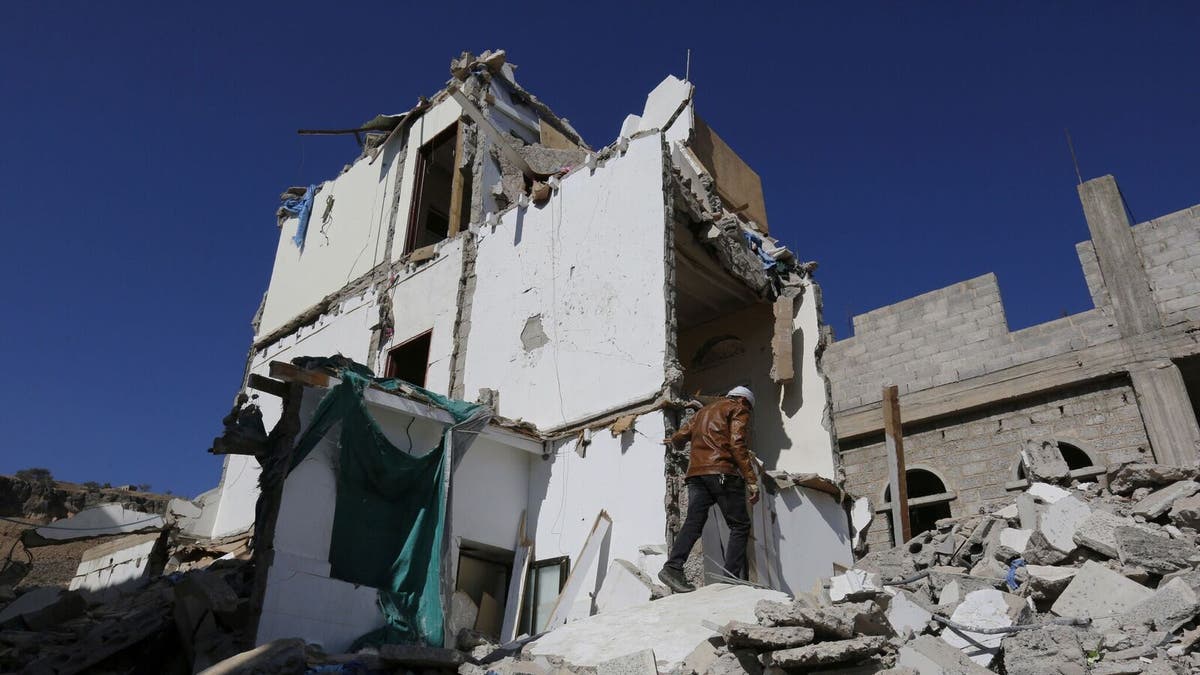
Sana'a. Local resident Mohammed, near the ruins of his home which was destroyed during the ongoing conflict. (EPA/ICRC/YEYHA ARHAB)
ISIS, SQUEEZED OUT OF IRAQ AND SYRIA, NOW 'REGROUPING' IN LIBYA, ANALYSTS SAY
AMERICA'S ROLE IN YEMEN WAR MUST END, US LAWMAKERS DEMAND
This war has killed more than 10,000, displaced over two million and seen the return of preventable diseases like cholera and more recently, diphtheria. That normally preventable bacterial disease has affected over 500 and led to several deaths, according to the U.N. Office for the Coordination of Humanitarian Affairs (OCHA), and fears have been raised that it will “spread like wildfire” as conditions crumble across the country.
“The war has stopped the wheel of the economy and there is income, only the military system gets money. Most people can’t get food to get enough strength for the day,” Ahmed Aladhmed, a 36-year-old living in Ma’rib city, told Fox News. “This war destroyed my country.”
A total of 22.2 million people, just over 75 percent of Yemen’s population of 29 million, are now in dire need of humanitarian assistance – a figure that has climbed some 1.5 million in just the last six months.
“Locals are begging in the streets, and a lot of the humanitarian relief packages that the U.N. agencies and other NGOs provide are sold on the black market,” explained Hebah, a 35-year-old in Aden. “The majority of Yemeni are extremely poor and can’t access health care services. Diseases, starvation, is killing us.”
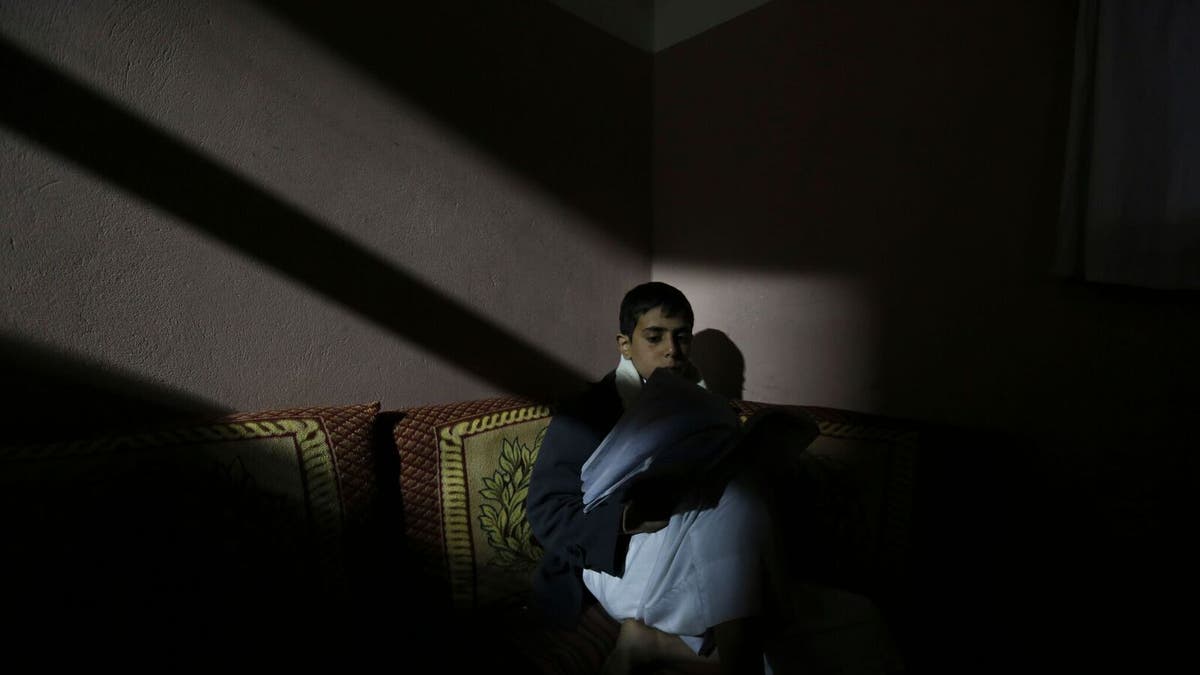
Sana'a. Intense darkness prevails over the neighborhood due to a severe shortage of electricity. Hisham, 14 years old, studies in a room inside his home. (EPA/ICRC/YEYHA ARHAB)
For the likes of Fahmi Albaheth, a 32-year-old aid-worker who visits various cities across Yemen, it’s the unseen scars that are the most haunting.
“People have lost hope and that is the worst thing. The war causes serious psychological illnesses for children, women and even adults,” she said. “Children need special care to recover from the fears caused by the war, because children are the future of this country.”
